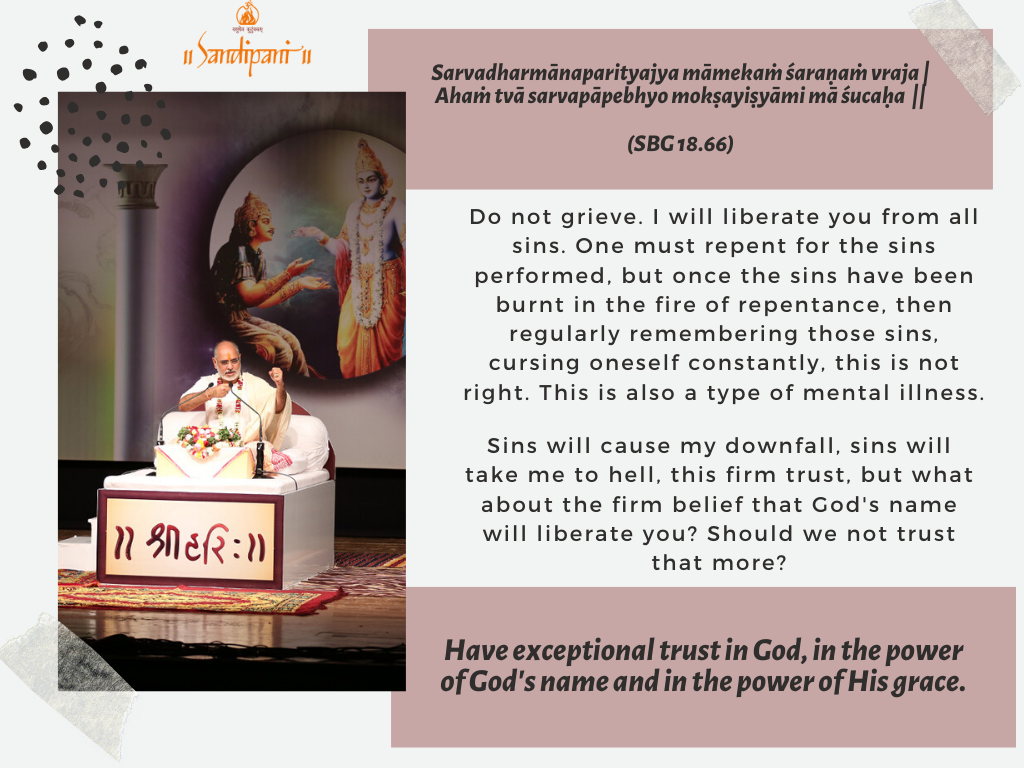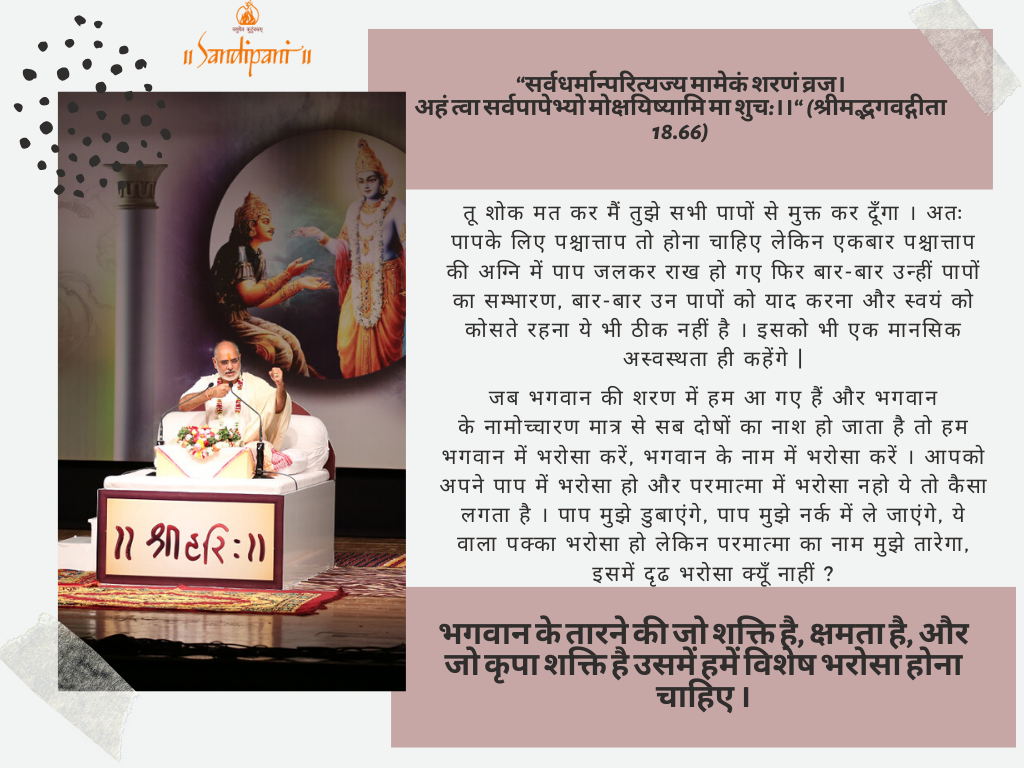What is the difference between parā and aparā vidyā? Is aparā vidyā necessary to acquire parā vidyā? How is parā vidyā helpful for mental health illness?
It is said: dve vidye veditavye parā aparā ca.
Meaning, two types of learning must be gained: parā and aparā. Parā vidyā is related to knowledge of the Absolute/ Supreme. However, it is also necessary to learn regarding the necessities required for this body and its nurture as it is the means that we use for our spiritual progress.
Knowledge to earn a living (aparā vidyā) is as important as spiritual knowledge (parā vidyā).
Knowledge and skill used to be categorised into two in the olden days in Gurukul. In the category of knowledge, teachings on life used to be provided whilst in the skill category, how to earn livelihood and behave in this world used to be taught.
We must possess knowledge in both areas, gain both types of learning. We should go to a Guru and serve them. It is also said that that:
Guruśūśruṣayāvidyā
There are many means to learn. From these, knowledge gained by going to and serving a guru is one way.
How is parā vidyā helpful for mental health illness?
Worrying excessively is a type of mental illness. Worrying too much, thinking more than is necessary, is not healthy mentally. So, what does parā vidyā say? Trust in God. Whatever God does, if you have taken refuge in God, then…
Hariḥi śaṁ te kariṣyati
It is also said in Puṣtimārga (subdivision of Vaishnavism):
Cintā kāpi na kāryā niveditātmabhiḥi kadāpīti |
Bhagavānapi puṣtistho na kariṣyati laukikiṁ ca gatiṁ || (Navratnam-1)
God never lets any detriment happen to His devotee.
Kaunteya pratijānīhi na me bhaktaḥ praṇaśyati (SBG 9.31)
In Gita, by saying this, God assures His devotees.
Even if a mistake has been made or a sin has been committed, then God says, there is repentance for every sin; there is an opportunity to improve every fault. There is no problem which does not have a solution. Thus, do not grieve, do not worry. At the end, God has said in Gita.
Nāma sankīrtanaṁ yasya sarvapāpa praṇāśanam (SB 12.13. 23)
This has been said at the end of Shrimad Bhagavat.
So, we must trust God’s name more. we must have exceptional trust in the power and capability of liberation by God and his grace.
In summary, the implication of being on the path of devotion is trust in God and the power of God’s name.
Binu bisvās bhakti nahi (RCM 7.90).
One who has attained such devotion, parā vidyā, knowledge of spirituality, which is the form of God leads to a state of no desires or worries in one’s life.
Thus, with this trust, let us continue to progress in God’s devotion (parā bhakti) and be rid of mental illness and consequently be healthy physically as well as mentally.

